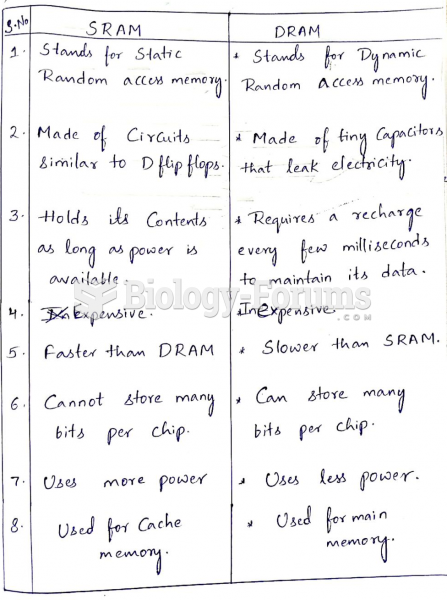Answer to Question 1
Answer: Abstract language refers to broad concepts that an audience can interpret in multiple ways. Consider the sentence We need to solve the transportation problem ASAP. In this sentence, the terms transportation, and ASAP (as soon as possible) are abstract. What do they mean? A dictionary defines transportation as conveyance (carrying, moving, shipping, or hauling), but does everyone think of the same kind of transportation when they visualize the word? Probably not. Does ASAP mean by today, or by the end of the week, or whenever you have the time to do it? Concrete language is specific. The more concrete the language is, the more likely it is that you and your audience will interpret the same message in the same way: By tomorrow morning, we need to determine why trucking shipments are leaving the warehouse one to two days late.
If you have trouble looking for the right word to express your meaning, you can use your word processing software's thesaurus to identify options. A thesaurus is a reference tool that provides synonyms and antonyms. Synonyms are words that have the same or similar meaning, such as quickly and rapidly. Antonyms are words that have opposite meanings, such as clear and confusing. However, choose carefully among the words that you see in the thesaurus, and look up unfamiliar words in the dictionary before using them. Even when a thesaurus lists two words as synonyms, they may not have the exact same meaning. For ex-ample, a thesaurus usually lists the word privileges as a synonym for benefits. However, if you were writing about employee benefits, you could not simply swap the word privileges for benefits. Employee benefits has a different meaning than employee privileges.
Answer to Question 2
Answer: As a first step in the evaluating process, reread the entire document from the audience's perspective. Think about the analysis stage of the ACE process and the purpose and outcome you identified for the communication. Ask yourself if the document has the right information and the right approach to achieve your goal:
Are your purpose and your main point clear? Underline your purpose and main point. If you cannot find explicit statements to underline, you need to revise your draft.
Have you provided all the information you need to support your purpose? Consider all the pieces of information you believe your audience will need to know and mark each of them in your draft. If any information is missing, revise. If you cannot imagine what your audience will need to know, ask friends or colleagues to provide feedback.
Will the organization of that information make sense to the audience? Read the topic sentences of each paragraph. Does each topic sentence identify the main idea of the para-graph? Do the details of the paragraph relate to the topic sentence? Does the progression from one topic sentence to the next seem logical?
Is the message persuasive enough to be successful? If your message is intended to be persuasive, identify key objections your audience may have. Also identify audience benefits.







